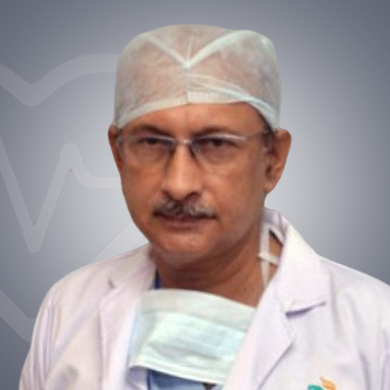
Renal Transplant Surgeon
Apollo Multispecialty Hospitals , Kolkata, India
30 Years of experience
Speaks: English
Dr Debasish Banerjee is one of the top Renal Transplant Surgeon in Kolkata, India. The medical specialist holds over 30 years of experience and is associated with Apollo Multispecialty Hospitals.
Association and Memberships Dr. Debasish Banerjee is part of:
Certifications :
Qualifications :
Hospital Address :
Apollo Gleneagles Hospitals, Canal Circular Road, Kadapara, Phool Bagan, Kadapara, Kolkata, West Bengal, India
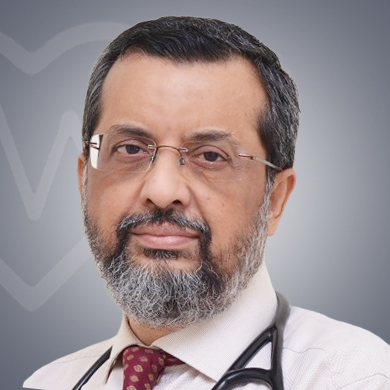
Dr Arup Ratan Dutta is one of the top Nephrologist in Kolkata, India. The clinician holds over 28 years of experience and is associated with Fortis Hospital.
Association and Memberships Dr. Arup Ratan Dutta is part of:
Certifications :
Qualifications :
Hospital Address :
Fortis Hospital & Kidney Institute, Dover Terrace, Ballygunge, Kolkata, West Bengal, India
Medical Expertise of Dr. Arup Ratan Dutta
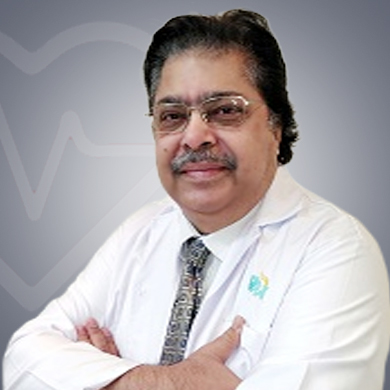
Renal Transplant Surgeon
Apollo Multispecialty Hospitals , Kolkata, India
30 Years of experience
Speaks: English
Dr Pradip Chakrabarti is one of the most skillful Renal Transplant Surgeon in Kolkata, India. The clinician holds over 30 years of experience and is associated with Apollo Multispecialty Hospitals.
Association and Memberships Dr. Pradip Chakrabarti is part of:
Certifications :
Qualifications :
Hospital Address :
Apollo Gleneagles Hospitals, Canal Circular Road, Kadapara, Phool Bagan, Kadapara, Kolkata, West Bengal, India
Medical Expertise of Dr. Pradip Chakrabarti
Using MediGence’s Telemedicine Platform, you can book a personalized video consultation with renowned doctors around the world

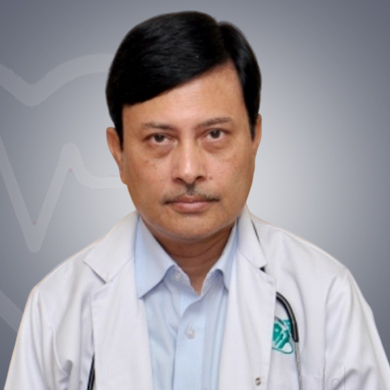
Nephrologist
Apollo Multispecialty Hospitals , Kolkata, India
39 Years of experience
Speaks: English
Dr Abhijit Taraphder is one of the foremost Nephrologist in Kolkata, India. The medical practitioner holds over 39 years of experience and is associated with Apollo Multispecialty Hospitals.
Association and Memberships Dr. Abhijit Taraphder is part of:
Qualifications :
Hospital Address :
Apollo Gleneagles Hospitals, Canal Circular Road, Kadapara, Phool Bagan, Kadapara, Kolkata, West Bengal, India
What is the medical expertise of Dr Abhijit Taraphder?
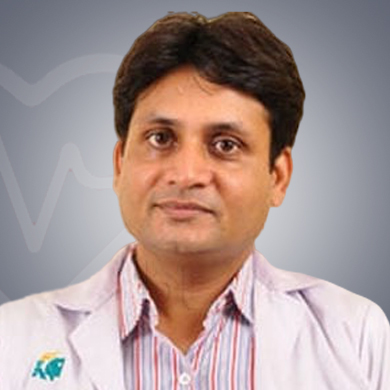
Dr. Manish Kumar Jain is a specialized Nephrologist in India. And one of the most sought after medical specialists in kolkata, India. The doctor has over 16 Years of experience and is associated with Apollo Multispecialty Hospitals.
Qualifications :
Hospital Address :
Apollo Gleneagles Hospitals, Canal Circular Road, Kadapara, Phool Bagan, Kadapara, Kolkata, West Bengal, India
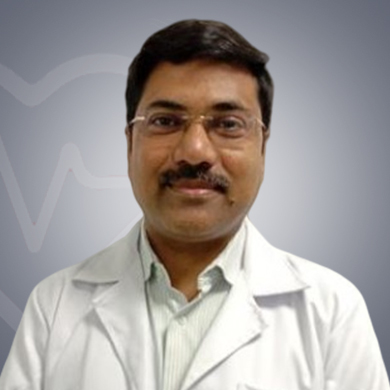
Dr Partha Karmakar is one of the best Nephrologist in Kolkata, India. The doctor holds over 10 years of experience and is associated with Fortis Hospital.
Association and Memberships Dr. Partha Karmakar is part of:
Qualifications :
Hospital Address :
Fortis Hospital & Kidney Institute, Dover Terrace, Ballygunge, Kolkata, West Bengal, India
Please make sure to see your doctor using Telemedicine before you even board a flight
Following are some of the best Transplant Surgeons in other cities:
Following are some of the best clinics in Kolkata, India with whom Transplant Surgeons are associated with:
A transplant surgeon has special training in transplantation surgery which involves replacing a patient's organ with a donor organ. A transplant surgeon performs transplants of various organs, such as kidneys, livers, hearts, lungs, the pancreas, the intestine, and recently tracheal tissue, faces, and the penis.
A transplant surgeon first does a general surgical evaluation of the patient to assess the possible risks and also evaluate the benefits of transplant surgery. They may consult the case with other doctors from multiple disciplines nephrologists, hepatologists, diabetologists, immunologists, and scientists before making any decision about the surgery and the approach for the surgery. The surgeon not just assesses the patient before the examination but also after the transplant surgery is completed and the patient is discharged.
The training and education received by a transplant surgeon are extensive. The education starts with a five-and-a-half-year MBBS course after completion of high school. After gaining this degree, the student then obtains MD or DO degree from an accredited medical school. During this period, the student is trained in basic medical care in both clinical and classroom settings. After completing medical school, the student needs to complete a residency program in general surgery.
Residencies in general surgery typically last five years and consist of a curriculum of clinical rotations in a wide range of surgical disciplines. The physician is trained in the different caveats of surgery including complex general surgical oncology, vascular operations, critical care, trauma management, transplant surgery, hand surgery as well as pediatric surgery. Residents in general surgery also do daily interaction with patients to improve their communication skills.
After completion of the residency program, the doctor must then complete fellowship training in transplant surgery. They are trained as well as educated in all the areas of transplant surgery with a focus on pathology, physiology, immunology, and anatomy specifically related to diagnoses and treatments of the final stages of organ failure and diseases. The surgeon will get specialized training in surgical transplantation of organs, and any related procedures that might be necessary when completing a transplant. Physicians also have exposure to operations like liver and kidney transplants, which are two of the most common in the discipline.
Organ transplantation is used if a patient is suffering from a very critical condition or is facing an organ failure. Such patients are mostly suggested to have a transplant so that their affected organ is replaced with a healthy, functioning organ. Below are some of the common conditions which are treated by an organ transplant surgeon.
Regardless of the type of transplant you may undergo, special blood tests and other diagnostic tests are performed to know if you are fit for a transplant. Blood tests are also needed to determine the kind of tissue and blood you have. These test results help to match a donor kidney to your body.
There are a number of reasons why you should visit a transplant surgeon.Transplantation is not a common procedure and might be recommended in case of critical conditions or organ failure.Your primary will refer you see a transplant surgeon if you experience the below-listed symptoms:
A transplant surgeon will evaluate your health condition to know if you are fit for transplant. The doctor will ask you a few questions related to your symptoms to know the severity of the health condition you are suffering from. They will order a few diagnostic tests to do a complete analysis of the consequences of transplant if any. If the transplant surgeon finds that transplant can have a harmful effect on your health, they will recommend alternative treatment options or will tell you to wait for some time so that you become fit for the transplant.
In addition to tests and physical exams, you could get a lot of information at your first appointment. You may need to bring a family member or friend along with you. The person you bring can help ask questions, listen, and take notes.
Some common procedures performed by a transplant surgeon are listed below:
Top Medical Specialities in Kolkata, India are: